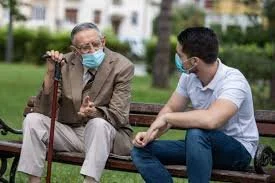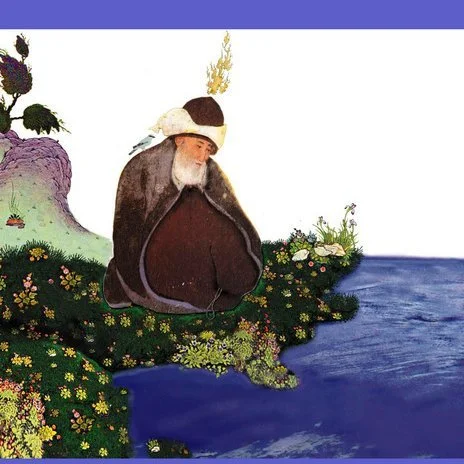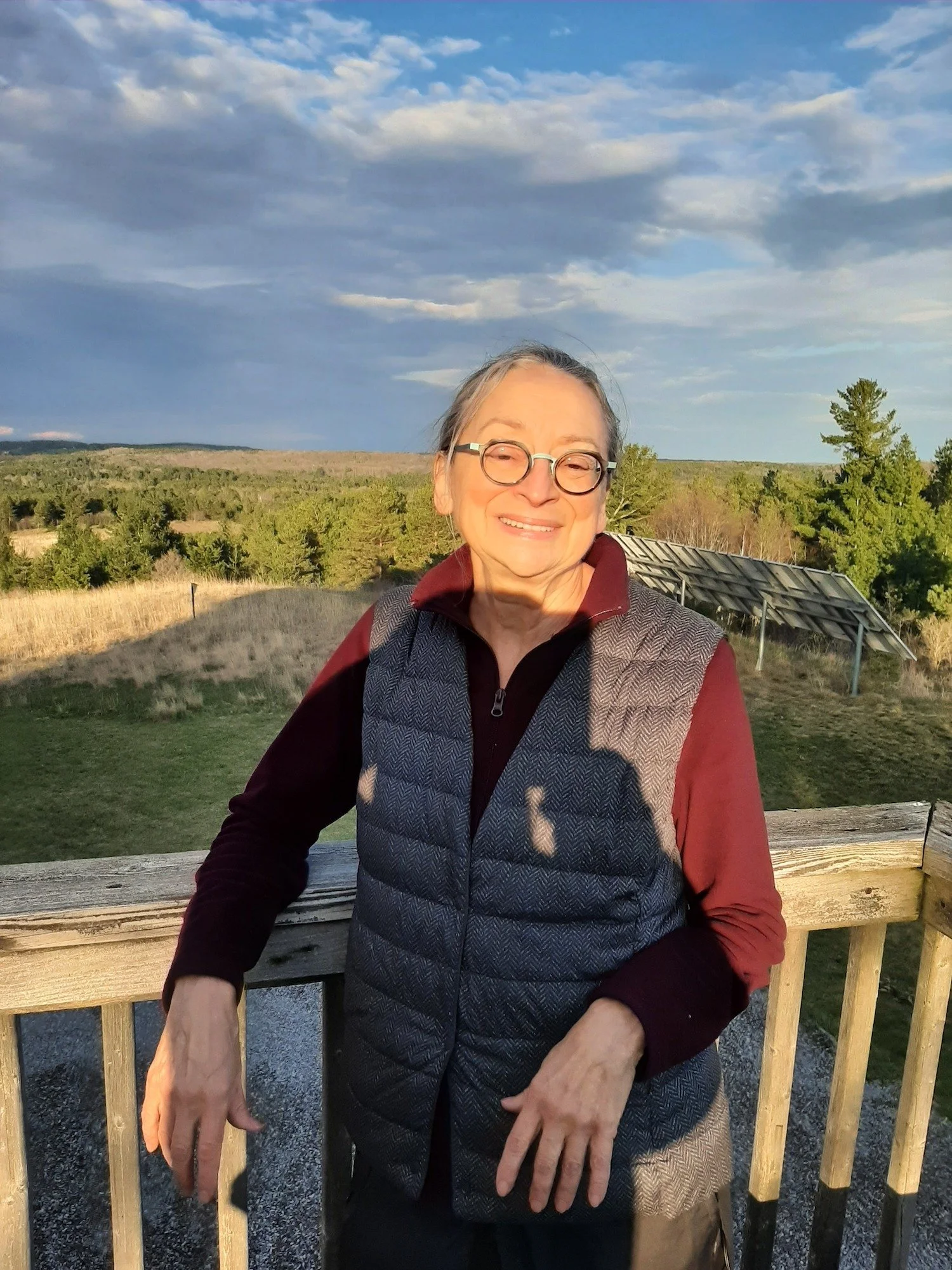Green light!
Green Light!
-Phil Aylesworth
KCC has good news to report on our progress towards acquiring the property for which we have a conditional agreement.
We have conducted our first (Phase 1) Environmental Site Assessment; required by the city, and are pleased to report that the assessment showed no environmental concerns that would have required a follow-up (Phase 2) study.
Another city requirement is a Geotechnical Study, drilling into the ground to determine the composition and structure of the underlying site. This has been carried out and we have received a verbal report that everything looks good. We are looking forward to the final report that will confirm this.
This is really wonderful feedback! So far, everything is going smoothly in our quest to build our cohousing community.
Young(er) and Old(er)
-Sue Aylesworth
I participated in the Fall 2022 session of the Intergenerational Memoir Project and thoroughly enjoyed it, so I'm passing along information for you to consider. My initial goal was to share my memories with my children and grandchildren, but I gained so much more from the program.
The Intergenerational Memoir Project is a heartwarming initiative that connects older adults with university students. The program is sponsored by Hamilton Aging in Community and McMaster University Department of Health, Aging & Society.
I met my student partner weekly on Zoom. We talked about my memories, and my partner came prepared with questions and prompts to get the stories flowing. I had so much fun remembering and sharing how I came to be this age. It was entertaining, as my upbringing couldn't have been more different from my student's. We laughed a lot! She just couldn't imagine a wringer washer! And how I got my long hair caught up in the wringer - but that's a story for another day.
The primary objective of the Intergenerational Memoir Project is to encourage the creation of meaningful life stories by older adults, with the guidance and support of their younger counterparts. Students assisted seniors in various ways, including recording conversations and writing drafts for review, asking questions to stimulate memories, suggesting resources for existing stories, and even typing up cherished letters from the past. The senior partner directs the project, ensuring their life experiences are accurately and thoughtfully represented.
At the end of the semester, a special Zoom event was held: MemoirFest23. This virtual gathering celebrated the partnerships forged over the course of the term. Some participants shared their stories with photographs and illustrations. Two of the participants even discovered a link from their childhood through the shared stories.
If you or someone you know may be interested in partnering with a student to work on a life story or family history, please contact Ellen Ryan at hamiltonagingcommunity@gmail.com for additional information. Geographic location is not a constraint, as communication can be facilitated via Zoom or phone.
Please also consider sharing this opportunity with friends and family members who might benefit from participating in the Intergenerational Memoir Project. By continuing to forge these intergenerational bonds, we can promote understanding, empathy, and a sense of community across generations.
Participating in the MemoirFest is optional. If you'd like to see some of the stories, the link is below. Each story is about 5-7 minutes long. I'm last, around 1:12.
Click link here Passcode: 3*d*rXfQ
Guest House
-shared by Linda Herold
This being human is a guest house.
Every morning a new arrival.
A joy, a depression, a meanness,
some momentary awareness comes
as an unexpected visitor.
Welcome and entertain them all!
Even if they’re a crowd of sorrows,
who violently sweep your house
empty of its furniture,
still, treat each guest honorably.
He may be clearing you out
for some new delight.
The dark thought, the shame, the malice,
meet them at the door laughing,
and invite them in.
Be grateful for whoever comes,
because each has been sent
as a guide from beyond.
-written by Rumi
Equity Member Interview… Jean Garsonnin
Jean has spent her life living in numerous places, both growing up and on her own. I guess you could call her a citizen of the world. But, fortunately, KCCers, she seems to have settled down now!
Jean’s parents were from France, but left after the war, moving to Venezuela. Her father was an engineer, who took many, many jobs in many, many places. Jean describes him as the epitome of a French colonialist. Jean’s eldest brother was born in France, but her older brother, older sister and herself (the baby) were all born in Barbados. Her mother decided that the children would speak English, though her father didn’t speak much. Not a problem, as he was a very traditional French father; the children should be seen but not heard.
They left Barbados when she was 3 and immigrated to Canada; living in a suburb of Montreal. They lasted one winter. They were a bit of a wild crew – she’d never worn shoes before – and they hated the cold. Not a happy time, so they moved again, to the U.S., living in Texas and California as their father found a series of work assignments. They moved so frequently that at 6 ½ years old, she could not read, write or tell time – she hadn’t been in school for more than 2 months at a time. (Don’t worry, she can now!)
Dad decided to move back to Canada and they settled near Lachute, NW of Montreal. She was not educated in French, however. Jean’s parents were nominally Catholic, but wanted their children to be educated in English, so they decided to “turn Protestant” when they crossed the border into Quebec so they could attend English schools. She did learn French on the street with the neighbouring kids.
Her father was posted by the French government to what is now Burkina Faso and later Ethiopia and Madagascar. Her mother had declined to leave Canada for the sake of the children’s education. Her mother and father did eventually divorce on good terms and he remarried to a wonderful woman, whom Jean loved as a stepmother.
When Jean graduated high school, she wanted to travel. Jean traded in her tuition for university for a plane ticket to Israel, a week after her 17th birthday. She lived on a kibbutz, spending half the day learning Hebrew and the other half working the fields. She left the kibbutz and worked at what she could find.
She got on a boat from Haifa to Istanbul and from there was supposed to go to visit her grandmother in Monaco. But on the boat, in 1969, she met people who were all going east to India. She met an American fellow 10 years older; they travelled together on a VW bus that had been parked outside a youth hostel in Istanbul with a sign saying $35 to Delhi.
After some time in India, Jean still needed to visit her grandmother and got a boat ticket from Bombay to Marseilles on a cheap boat that would take a month travelling around the Cape. She made some friends on board, and they invited her to visit their homes in South Africa. Well, she couldn’t pass that up and could get the boat another time later!
At 18, Jean was back in Canada and got a job at McGill as a lab research tech. She became fascinated with science, immunology and research. She decided to study Biology at university and did it at night while working in the day. She managed 2 years this way.
Jean met up again with her American friend. They married and moved to Toronto, as he didn’t speak French. She decided to study nursing at the University of Toronto because she really wanted to keep travelling. The relationship lasted 3 years. When she graduated, she worked at Toronto Public Health.
She went with CUSO to Ecuador and that started her working internationally, rather than just travelling. She wanted to go and live in places and be in community with people and learn about the realities of that community. After Ecuador, she worked for a couple of years in Canada for the Muscular Dystrophy Association as National Director of Patient Services. Then off to a CIDA project in Nepal. Working in a remote outpost, a small plane arrived from Kathmandu, bringing this guy by the name of Ralph McKim. He was in and out as a short-term consultant. They discovered they had lived a few blocks apart in Toronto and that they had many interests in common, even with a 20-year age difference.
Jean got her Masters in Development Studies in the Netherlands. From there she and Ralph moved to Islamabad, Pakistan and worked for the same project for 3 years. She took some smaller contracts working on gender issues and community health development. They both enjoyed the arts of Pakistan – she got into textiles and he into restoring woodwork. On one home leave, they got married at City Hall in Toronto.
Ralph was in the process of building a log house on 260 acres near Pontypool. Jean got in in time (“No need for a window above the stove.”). She worked on the construction of the inside of the house for a year while Ralph worked between Malawi and Ottawa. They finally moved in in 1994. But, of course, they accepted a project in northern Ghana and spent 4 years there. After that, they did short-term consulting until they retired, Ralph at age 80 and Jean at 63.
Was it hard to stop working and stay in one place? They brought back lots of things from their travels and they are all around the house. They look at them, treasuring them and the memories they provide. They feel very fortunate to have had amazing opportunities, met amazing people who were supportive, and had a lot of friendships/communities along the way.
When I asked about hobbies, Jean said that, before Covid, she would play badminton and do Pilates and Rebounding (a low impact workout on a small trampoline) every week. During Covid, she started yoga online and she continues that now. She also does long walk/runs – about 4km every day -- which she does no matter the weather. She likes to read and used to do all kinds of sewing and designing with fabrics, which she may pick up again. She likes languages and paid attention to them wherever she lived. She speaks English, French and Spanish fluently.
It is a transition time of cleaning out now; focusing on the next stage, which is KCC! Ralph is realistic about his age (coming up on 92) and says maybe he’ll make it to the KCC building and maybe he won’t. On the other hand, Jean says, he could outlive her as he has the constitution of an ox! She learned about cohousing from Linda Slavin and she was immediately interested. She had always lived in community when not married; she has lived in co-op housing. She feels cohousing is her natural environment.
Wise words
Do not ask your children to strive for extraordinary lives. Such striving may seem admirable, but it is a way of foolishness. Help them instead to find the wonder and the marvel of an ordinary life. Show them the joy of tasting tomatoes, apples, and pears. Show them how to cry when pets and people die. Show them the infinite pleasure in the touch of a hand. And make the ordinary come alive for them. The extraordinary will take care of itself.
-William Martin
We would love to tell you more about ourselves and what cohousing can offer you. Drop us a line at info@kawarthacommons.ca





